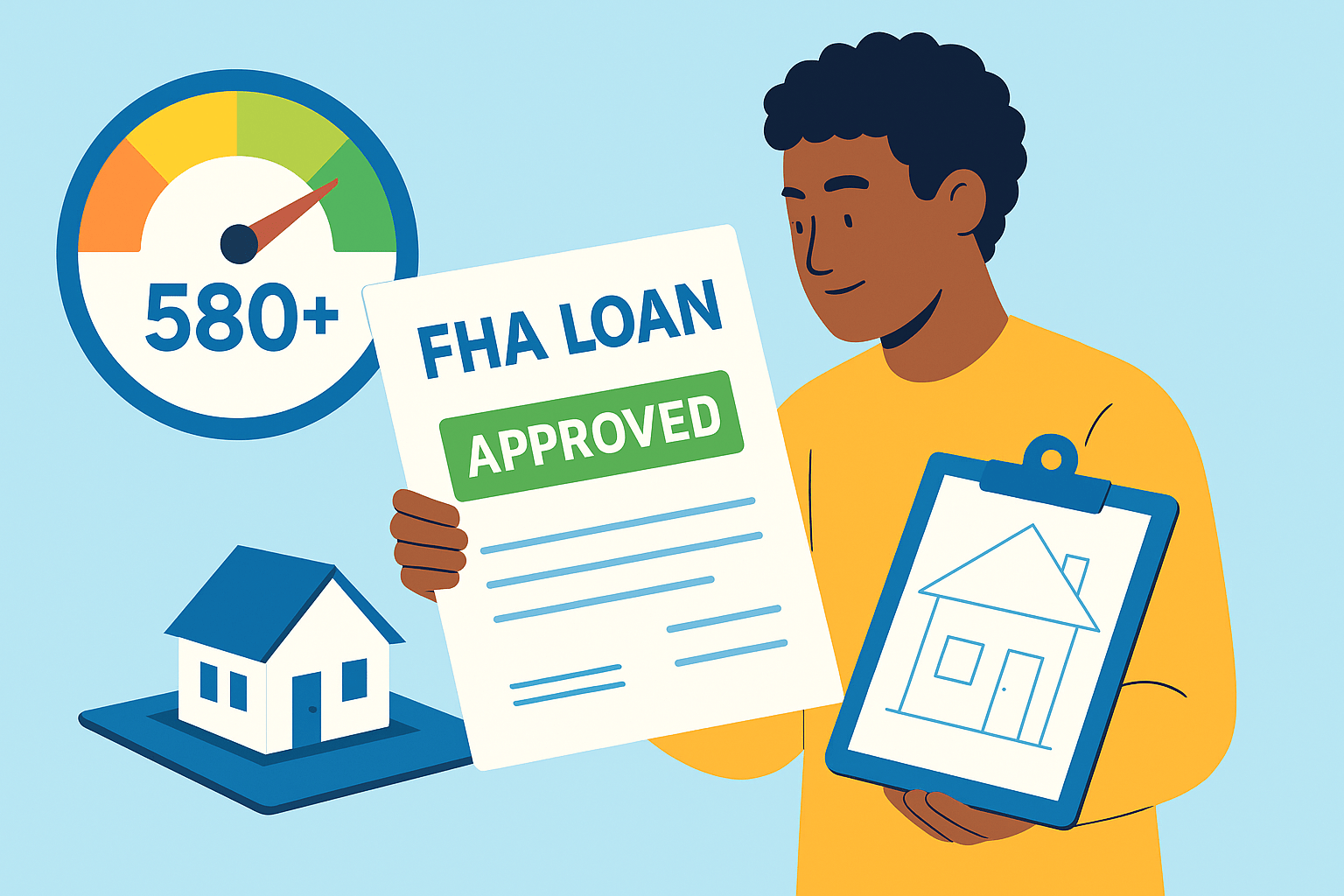Texas Mortgage Credit Certificate First-Time Homebuyer Assistance Programs
What Is the Texas Mortgage Credit Certificate? Your Shortcut to Lower Taxes as a First-Time Buyer
Buying in the Lone Star State for the first time? The Texas Mortgage Credit Certificate (MCC) program could carve hundreds—sometimes thousands—of dollars off your annual federal tax bill, freeing up cash for paint, patio furniture, or that inevitable first Home Depot run. In the next few minutes you’ll learn how the MCC works, who qualifies, how much you may save, and—most importantly—how to claim the benefit before signing your closing documents.
Why Does Texas Offer an MCC Program?
Texas has one of the youngest populations in the country, yet homeownership rates among 25- to 34-year-olds lag almost 10 percentage points behind those of Boomers at the same age. The Texas Department of Housing & Community Affairs (TDHCA) created the MCC to tackle one piece of that puzzle: monthly affordability.
- Not a loan, but a tax credit. Eligible borrowers receive a non-refundable credit for up to 20% of the mortgage interest they pay each year.
- The remaining 80% of interest is still deductible if you itemize, stacking two tax perks in one.
- Unlike temporary seller concessions, the MCC can last for the entire life of the loan—potentially 30 years.
Put simply, the MCC shifts money you would have mailed to the IRS back into your household budget.
How Does a Mortgage Credit Certificate Work in Texas?
An MCC acts like a personal coupon code you enter on your yearly 1040. Here’s the mechanics:
- Apply for the certificate through a TDHCA-approved lender before closing.
- Receive the certificate number; it will list your exact credit rate (capped at 40% nationwide, but typically 20% in Texas).
- Claim the credit annually using IRS Form 8396; the lender also sends you a year-end 1098 showing total interest paid.
- Enjoy up to $2,000 back each year—because federal rules cap the credit at that amount.
Scenario: Maria buys a $300,000 home in Austin with a 6.5% fixed-rate mortgage. Year 1 interest runs about $19,200. At a 20% MCC rate she qualifies for a $3,840 potential credit, but the $2,000 ceiling applies. That’s still $166 a month she can redirect toward principal, student loans, or weekend tacos on South Congress.
Quick Math: Monthly vs. Yearly Benefit
Lenders normally calculate the full credit, divide by 12, and add it to your qualifying income. This can nudge your debt-to-income ratio low enough to unlock a better rate or a larger home without violating underwriting rules. The trick? File the proper W-4 with your employer so less tax is withheld each paycheck.
Who Qualifies for the Texas Mortgage Credit Certificate?
TDHCA’s eligibility rules balance flexibility with fiscal responsibility. You must meet all of the following:
- First-time buyer status: no ownership interest in a primary residence in the past three years unless you’re buying in a designated “targeted area,” are a veteran, or certain disaster survivors.
- Income limits: range from roughly $97,600 to $162,000 depending on family size and county. (TDHCA updates figures annually; check the latest chart.)
- Purchase price limits: typically $481,176 for non-targeted and $588,104 for targeted zones, though rural counties may vary.
- Occupancy requirement: the home must be your principal residence within 60 days of closing.
Good news: credit scores, loan types, and down-payment size don’t affect MCC eligibility—it’s the household numbers above that matter.
Can I Combine the Texas MCC With FHA, VA, or USDA Loans?
Yes. In fact, pairing the Texas Mortgage Credit Certificate with low-down-payment loan products is common practice.
TDHCA lets you stack the MCC on top of:
- FHA 203(b) and 203(k) renovation loans
- VA loans for eligible service members and veterans
- USDA Rural Development mortgages
- Standard conventional loans (conforming and sometimes non-conforming)
There’s one caveat: if you refinance, you’ll lose the original certificate unless you request a re-issuance within 12 months—an often-forgotten step that costs a modest fee but preserves the credit.
Step-by-Step: Securing Your Texas MCC Before Closing Day
- Confirm your lender participates. Over 120 banks and credit unions statewide hold TDHCA approval; if yours doesn’t, ask for a referral.
- Complete the online homebuyer education course (about six hours, $25) recognized by HUD.
- Submit Form MCC-1 with supporting income documentation. Your lender forwards everything to TDHCA.
- Pay the one-time issuance fee—usually $500 plus a small legal review cost. Many sellers agree to cover this to sweeten the deal.
- Receive conditional approval within seven business days, then get the final certificate at funding.
Average timeline: 14 days if documents are complete. In competitive Texas markets, where homes often go under contract in 36 hours, starting early is crucial.
Is the Texas Mortgage Credit Certificate Really Worth It?
That depends on three variables: interest rate, tax liability, and how long you keep the loan.
| Loan Size | Interest Rate | Year-1 Interest | 20% MCC (capped) | 10-Year Savings |
|---|---|---|---|---|
| $250,000 | 6.25% | $15,469 | $2,000 | $20,000 |
| $400,000 | 6.25% | $24,750 | $2,000 | $20,000 |
Because of the $2,000 cap, benefits flatten at higher loan amounts. However, for mortgages under about $350,000, the MCC can offset nearly a quarter of your first-year interest cost—and that’s meaningful when grocery bills and childcare continue to climb.
Micro-Story: The Power of $166 a Month
When newlyweds Devin and Lila closed on their starter home in Lubbock, their lender suggested the MCC. Skeptical at first—they’d already swallowed enough acronyms—they still filed the paperwork. One year later, their $2,000 refund funded an emergency HVAC repair that hit during July’s 109-degree heatwave. “It wasn’t glamorous,” Devin laughs, “but the certificate literally kept our AC humming.”
Hidden Advantages Many Buyers Overlook
- Improved Loan Qualifying: Lenders can “gross up” the expected credit, effectively boosting your qualifying income by up to $166 per month.
- Portability within Texas: If you sell and buy another Texas home, you may in some cases transfer the certificate—ask TDHCA for details.
- Co-buyer flexibility: Only one borrower must meet the first-time requirement if purchasing in a targeted area.
These nuances rarely make the first page of a Google search, yet they can tilt the scales for borderline applicants.
Potential Drawbacks and How to Mitigate Them
No program is perfect. Here are the downsides—and the workarounds.
| Recapture tax risk | If you sell within nine years at a profit, federal law may trigger a recapture tax. Mitigation: stay put, break even on sale, or keep income under the threshold. TDHCA offers a free calculator. |
| Up-front fee | The issuance charge can sting. Solution: negotiate seller credits or check TDHCA’s occasional fee-waiver promotions. |
| Paperwork discipline | You must remember Form 8396 annually. Tip: set a recurring calendar reminder each January 15. |
Frequently Asked Questions
How long does the Texas MCC last?
For as long as you keep the original mortgage—up to 30 years—but it ceases once you refinance or sell unless re-issued.
Can I claim the credit if I owe zero federal tax?
The MCC is non-refundable, so you need tax liability to benefit. However, unused credit can carry forward for three years.
Does the program work on new builds?
Yes. Construction or purchase of a newly built primary residence qualifies as long as price and income limits are met.
Is there a maximum home size?
No square-footage limit exists; only purchase price limits apply.
Can investors use the MCC on rental properties?
No. You must occupy the home as your principal residence within 60 days of closing.
Ready to Claim Your Texas Mortgage Credit Certificate?
The TDHCA’s MCC could be the most underrated line on your closing disclosure. A few signatures today might save you tens of thousands over the next decade—money better spent on longhorn-themed décor or that ultimate backyard smoker.
Take the next step: connect with one of our vetted, TDHCA-approved lenders who can pre-qualify you for both financing and the credit in one seamless phone call. Click or tap below to schedule a 15-minute discovery session.
Information sourced from the Texas Department of Housing & Community Affairs and compiled by independent analysis.
Explore More Blog Posts
Checkout more similar posts those will help you to choose better property.












 Profile
Profile Password
Password Saved Properties
Saved Properties Sign Out
Sign Out
 +0.01
+0.01
 -0.15
-0.15

